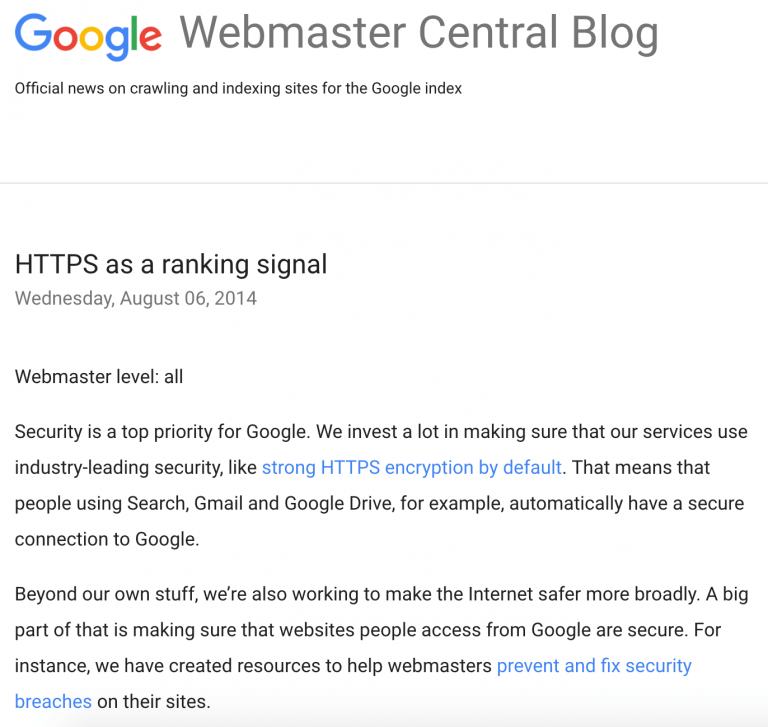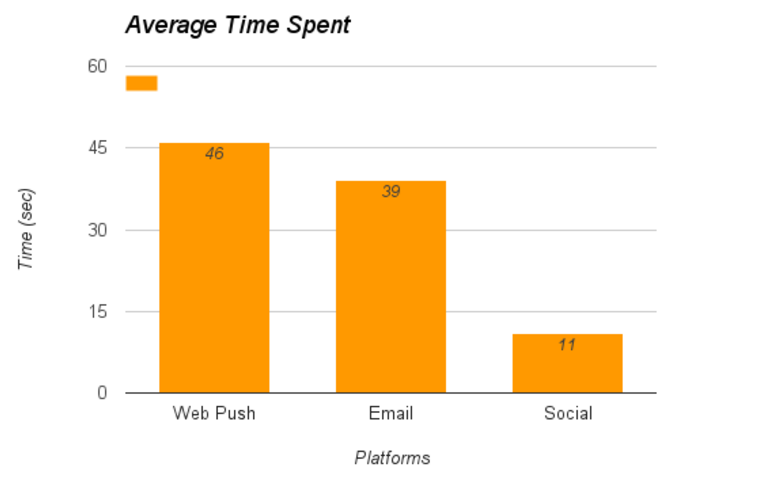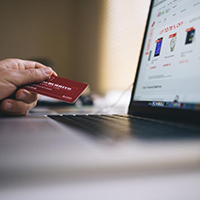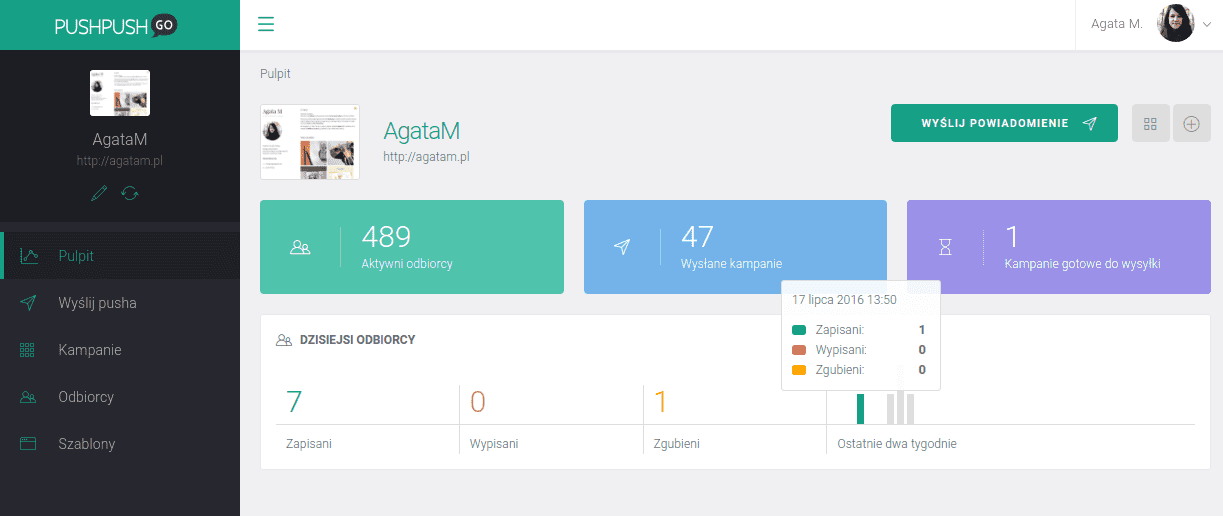The inspiration to create web push notifications in browsers were of course notifications sent by mobile applications. That was over ten years ago but today, web push is sent by the largest companies in the world, including Facebook and Google, and used by content publishers, bloggers, online stores, banks, telecoms, marketplace platforms and all other companies for which their website is a very important point of contact with potential customers.
However, even today many specialists cannot agree on whether the notifications are good for SEO or maybe damage the position of a website. Today I will take a closer look at this topic and try to answer these doubts.
But let's start from the beginning...
What is SEO and what influences the position of a page in a search engine?
To analyze the impact of web push notifications on SEO, you must first understand what actually affects the position of a page in search engines. SEO is a complex and lengthy process governed by Google algorithms. There are over 200 factors (which we know or assume to exist) that affect the position in SERP (Search Engine Result Pages). SEO strategy is usually divided into 2 elements: on-site SEO and off-site SEO.
On-site SEO
On-site SEO is, as the name implies, all the activities performed on the site to increase its visibility. Such activities include primarily:
1. Technical SEO
2. Content marketing and content optimization
Technical SEO takes the largest part of the "SEO cake", at least at the very beginning. These activities are aimed at optimizing the site so that, most importantly, it is visible on Google and, secondly, Google analyzed it well. What are the sample elements of Technical SEO?
- Improving site structure and architecture
- Improvement of page indexation by introducing elements such as site map, robots.txt
- Elimination of external and internal duplication that is caused by technical problems
- URL optimization
- Implementation of an SSL certificate
- Elimination of server errors
- Improved internal linking
- Optimization of meta tags
- Improving page speed
- And much more
As you can see, there are a lot of technical factors affecting SEO. But this is only one element. Let's move on.
Content marketing and content optimization is another important aspect that everyone associated with online business understands. "Content is King" is like a mantra for every marketer. It’s obvious that the content on the website is important. It not only saturates the page and increases the number of keywords it displays, but above all attracts new potential customers. However, it’s not just the content that should be "King" but their context. Dear marketers, remember the new mantra: "Context is King".
Off-site SEO
Off-site SEO includes off-site activities aimed at increasing page visibility. External linking, for example, complements the SEO process on the website and strengthens it. The idea is quite simple - if a website is valuable then its users often want to share it with others. Google sees the links leading to the site and receives it as a good signal. Links should be created naturally, should be unique (surrounded by unique text) and lead from the strongest possible pages to effectively strengthen the authority of the domain.
Do web push notifications have an influence on SEO?
No. Google has never confirmed that notifications have a positive or negative impact on SEO. Instead, they affect other indicators measured on the page that improve its position. Fortunately, the era of annoying and aggressive pop-ups is behind us, and they have contributed to the opinion that notifications are worsening Google's position. Web push notification management tools are more and more developed and implementation strategies are more and more thoughtful.
Using notifications properly can improve your SEO
Let’s look at how using web push notifications can improve the visibility of your page.
1. SSL Certificate
Most web push notifications require the implementation of an SSL certificate, especially for advanced functionalities. This certificate ensures connection security. In 2014 Google confirmed that the HTTPS protocol is a ranking factor and secured pages will be favored in the search engine. Last year, Google went a step further and marked unverified pages as "dangerous." So, by implementing the HTTPS certificate to use notifications, you can indirectly influence Google's positioning of your page.

Decreasing bounce rate
The bounce rate tells you how many users who have come to your site without visiting a subpage. The higher the bounce rate, the worse for your site's position.

The appropriate use of notifications can direct your users to other subpages. A study by Oncrawl found that traffic from web push notifications, compared to traffic from email and social campaigns, has a lower bounce rate.

3. Increased time spent on site
How much time a user spends on your site is also a ranking factor. If a user spends more time on your page, Google takes that as a sign that it is useful, provides content that satisfies visitors and answers their questions.

The same Oncrawl study has shown that users from web push notifications spend more time on the site than from social channels or email campaigns.

4. Increased dwell time
Dwell time is different than time spent on the site after coming to it from organic search results. In other words, Google measures the time between clicking on a link on a search results page and returning to it. Web push notifications, as in the second point, can direct the user to subsequent subpages and thus increase dwell time.

5. Promotion of fresh content and news
Google likes fresh content. Therefore, new content can often get to the top of search results, but unfortunately only for a short time. Promoting new content through web push notifications and increasing traffic on a given subpage will show algorithms that the content there is valuable and worth keeping longer in top search results. Promoting news through web push notifications can also help you get into Google News.
6. Returning users are engaged users
The returning user is the best kind of user. Google agrees, so if users often return to your site, it can help the positioning of your page. If someone returns to your site, it means that they find valuable content on it.
Also, the returning user is, after some time, a more engaged recipient. How can this translate into search engine position?
 1. Users can add a comment that will increase the amount of content on the page. At the same time, the number of comments directly affects the position of the page in the search engine.
1. Users can add a comment that will increase the amount of content on the page. At the same time, the number of comments directly affects the position of the page in the search engine.
2. It can link your site somewhere else (recommending it) and thus contribute to the increase in the number of pages / linking domains and the authority of the page.
Why is segmentation important for SEO?
Audience segmentation definitely increases conversions. To use a simple example, a woman is less likely to buy shaving cream for men, so if you want to notify customers about a new promotion for that product in your store, send the notification to men.
It's the same from an SEO perspective. If you want users to spend more time on your site, do not increase the bounce rate and share your content on other channels, serve users content that interests them. Carefully examine your target, create a few people to whom you will target individual campaigns and stick to them consistently.
Summary
A properly planned campaign using push notifications can undoubtedly improve your position in Google search results. The notifications themselves do not directly affect the ranking but may affect various Google ranking factors.
There is an opinion in the industry that notifications can harm your website. This idea results from the fact that in the past, excessive sending of notifications and pop-ups increased the bounce rate and discouraged users from websites and even brands. That is why a good plan and segmentation of recipients to whom you target your campaigns is so important. Use push notifications not only to increase conversions but also to improve your position in Google.













